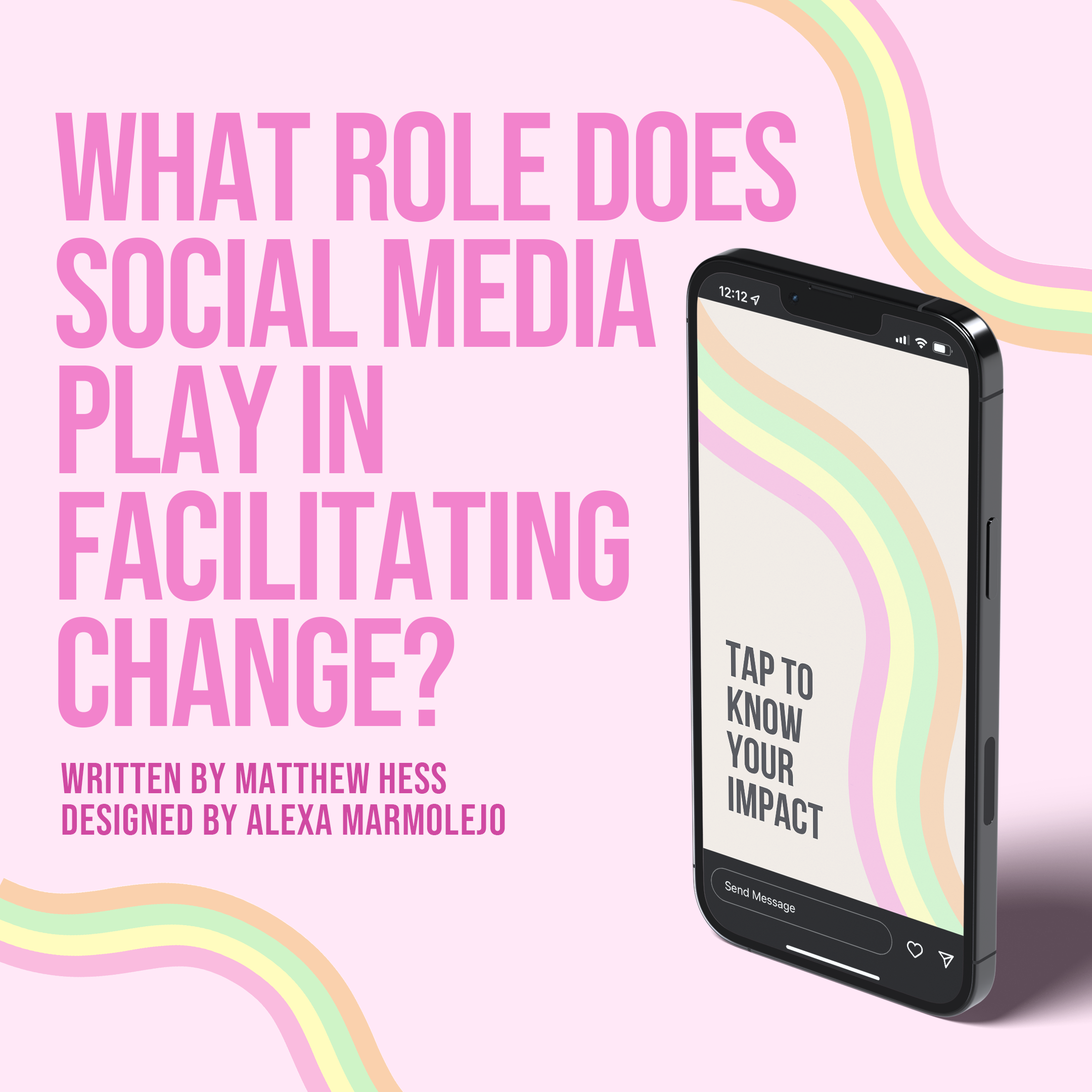
Social media activism has become a prominent force in shaping societal discourse and advocating for change. While it has its merits, it also raises concerns about the depth and authenticity of meaningful activism.
There are plenty of positive aspects to social media activism. Its widespread accessibility allows voices to spread awareness about topics quickly. Whether it be a natural disaster, shooting or political instability, social media provides breaking news as quickly as possible. People can share real-time updates, videos and testimonies that authenticate unfiltered events. According to a Pew Research poll, 64% of Americans claim that they are more aware of current events because of social media.
Social media activism can come in many different forms. A common case is the story feature on Instagram, where people can repost informational or political graphics. These can also be found on X, formerly known as Twitter. People volunteer their opinions on events and make broad calls for widespread change, theorizing that it will stop the disaster from happening again.
While social media activism has undoubtedly brought attention to various social issues, critics argue that its impact often falls short of creating meaningful and tangible change. Several factors contribute to the skepticism surrounding this point. First, there is a concern over the authenticity of the engagement. Simply liking or reposting on social media may create a temporary surge in online visibility for said cause, but it does not translate into concrete actions or systematic change. This practice allows privileged people to provide minimal effort and feel morally satisfied.
Furthermore, the fast-paced nature of social media trends poses a challenge to long-term impacts. Issues and trends quickly fade away as the next disaster unfolds. This rapid turnover of issues disallows genuine focus on any topic, leaving the impacted group to suffer.
With that in mind, the mental state of social media users can be fragile after learning about so many issues. Commonly known as “outrage fatigue,” the incessant flow of suffering across the world can lead to a desensitization and lack of urgency associated with certain issues. As access to information is easier than ever, people can easily learn about the newest world tragedy. Eventually, the knowledge and inability to effectively fix the problems as an individual can have a mental impact. People can become cynical about the world around them and even turn apathetic towards suffering groups. While it is important to stay politically active, there is only so much one person can do.
Finally, social media activism can sometimes devolve into performative gestures rather than meaningful care. Posting about a cause, specifically by a celebrity, may give the appearance of advocacy, but without genuine, tangible efforts, the impacts remain slim. Virtue signaling is a common tactic, whether it comes from a corporation, celebrity or neighbor. Interestingly, corporations will often support certain causes that have unexpected positive externalities for their business.
Not every part of social media’s role in current events is cynical, however. It has an excellent ability to spread awareness and initiate conversations about certain topics. If people learn to use the information they absorb and apply it for substantive results, there would be a real opportunity for people to create widespread change.